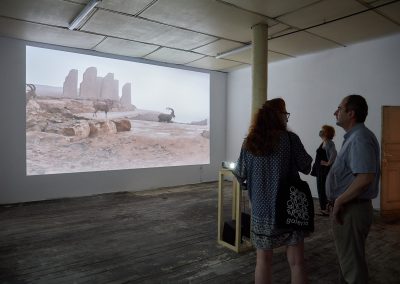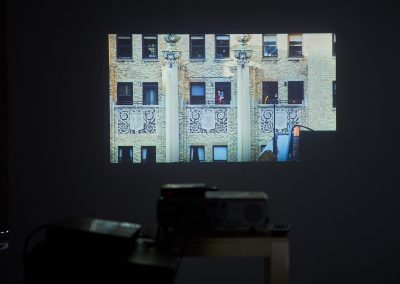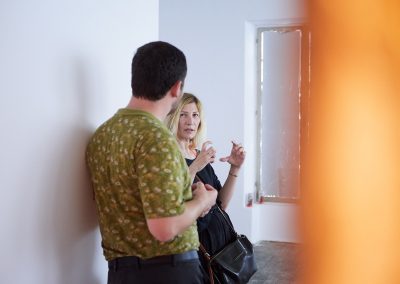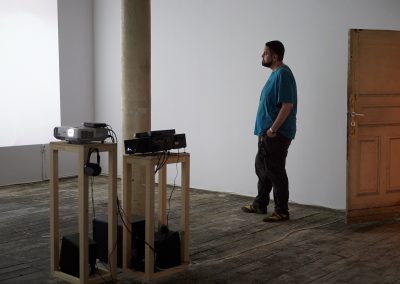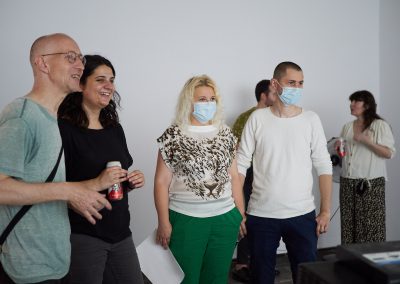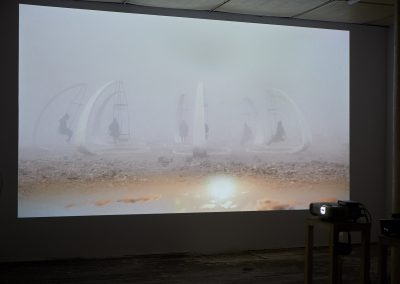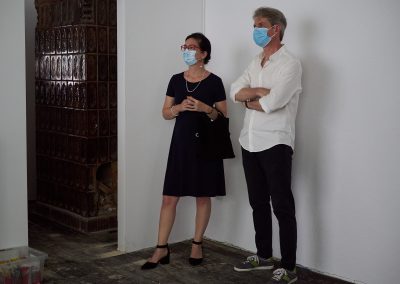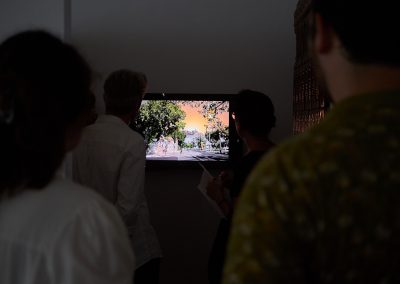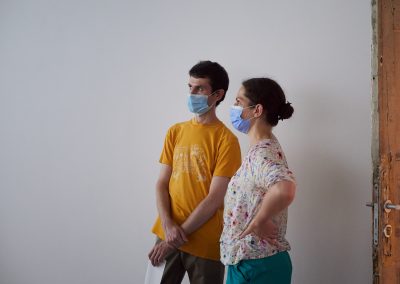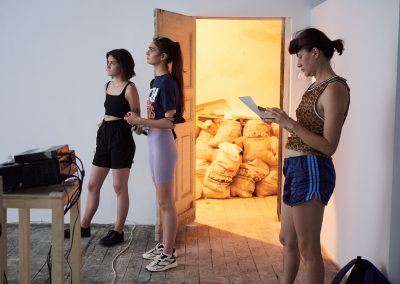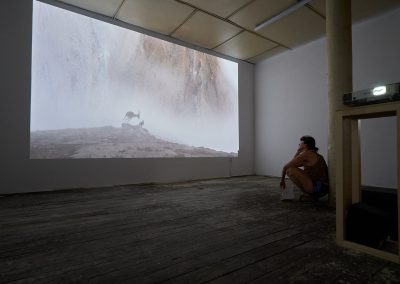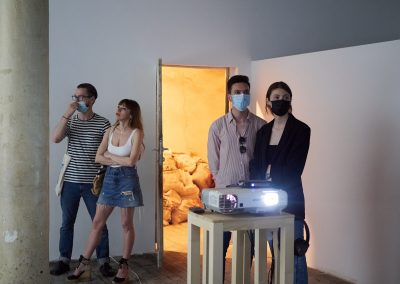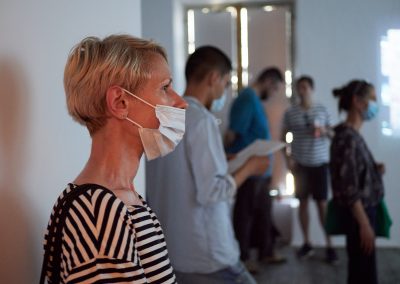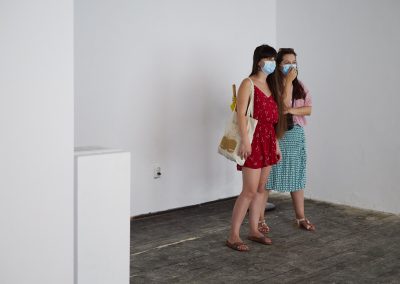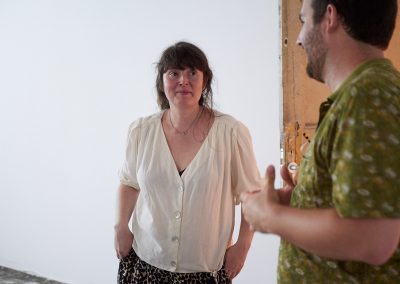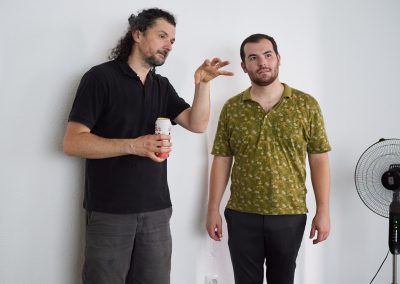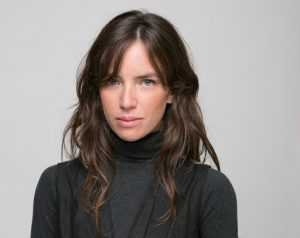
About Hinda Weiss
Hinda Weiss, (b.1980, Cleveland, Ohio), is a photographer and video artist based in Tel Aviv and New York. Weiss holds an MFA from Columbia University and a BFA from the Midrasha School of Art. Her work has been exhibited in solo exhibitions, group exhibitions, and video screening in venues such as the Israel Museum in Jerusalem and Palais de Tokyo in Paris. Weiss has received numerous awards, prizes, and scholarships, including the Artis exhibition fund, Outset Contemporary Art Fund Young International Artist Award, Ostrovsky family fund, Rabinovitz art fund,Minister of Culture Young Artist Award, and Columbia University Dean’s traveling grant. Weiss has attended international artist residences such as Basis, Frankfurt, Meetfactury, Prague, and Artport TLV, and her work’s can be found in the collections of the Israel Museum, the Herzliya Museum, the Shpilman Institute for Photography, Haaretz collection, as well as galleries collections and private collections.
More about the artist: www.hindaweiss.com
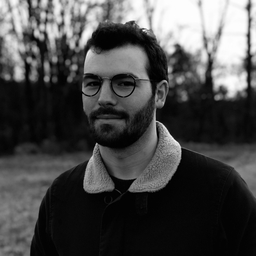
About Jonah Goldman Kay
Jonah Goldman Kay is a writer and researcher based in New Orleans and London. His criticism has appeared in Artforum, The Paris Review, and the LA Review of Books.
More about the artist: www.jonahgoldmankay.com
Hinda Weiss / Deep Time, 2021 at Camera E12 – Malmaison Studios
The solar dating system, the method of marking time used most commonly in the Western world, was created to function on a human scale. Our temporal milestones — weeks, months and years — measure the passage of time within a single lifetime or between generations. But at the geological scale, our granular conception of time crumbles under the weight of millennia. Deep Time, as geologists refer to it, is so colossal that it stretches the human conception of time to its limit.
Time, its malleability, and the means by which it is marked are recurring themes in Hinda Weiss’s works. In After The Desert Goat, Weiss explores the limits of narrative time. The film has no singular defining moment—each scene moves seamlessly into the next. The emptiness of the Negev desert elucidates questions about how one can mark time in a monotonous landscape. In Postcard from Tel Aviv, Weiss explores the process of historiography in Israel’s largest city, both before and after the founding of the state. A common tourist item used to mark an event in time and in an individual’s, life becomes a narrative that spans the city and its history.
During the pandemic, common means of measuring time began to slip away. The days blended as weekly rituals and special events devolved into the monotony of the home. At the same time, new rituals formed in their place — a kind of ad hoc framework for marking the days. Every evening during the worst parts of the pandemic, New Yorkers would emerge from their homes, opening their windows to clap for the doctors, nurses and other workers fighting the virus. Weiss, who was in New York during the early days of the pandemic, documented the daily applause. The resulting work, 7 p.m., archives the development of a new ritual for marking the passage of time.
Deep Time is the first exhibition to be held at our new space, E12, at the second floor of the Atelierele Malmaison. The Malmaison has quickly become one of the most effervescent artist hubs in Bucharest, comprising of artist-run-spaces, galleries, artist studios and experimental art spaces. The building has been a former barrack for the Romanian military and a penitentiary for political prisoners during the Communist era. With the specters of the past haunting the space, Weiss’s works ask us to examine how architecture and landscape can be used to control perceptions of time.
The event was supported by Artis. More information: www.artis.art
ARAC is a non-profit organization founded in June 2012, in order to produce and promote contemporary art in Romania and abroad. The initiative of the 58 Plantelor Residency belongs to Anca Poterasu, gallerist and ARAC President. The first edition of the Residency took place in 2015 and it was financed through a grant offered by Norway, Iceland, Liechtenstein and the Romanian Government.

